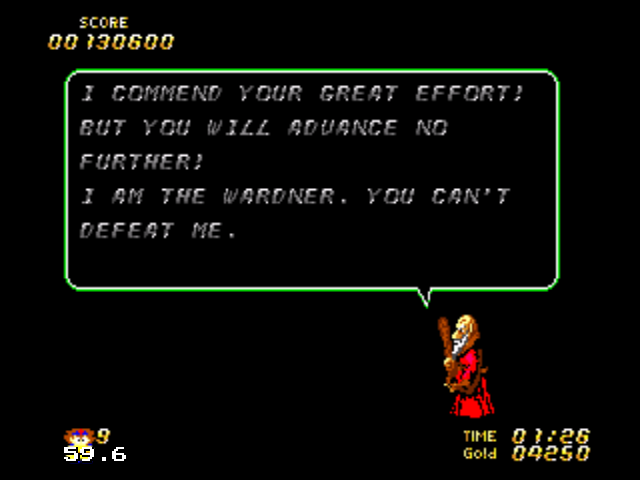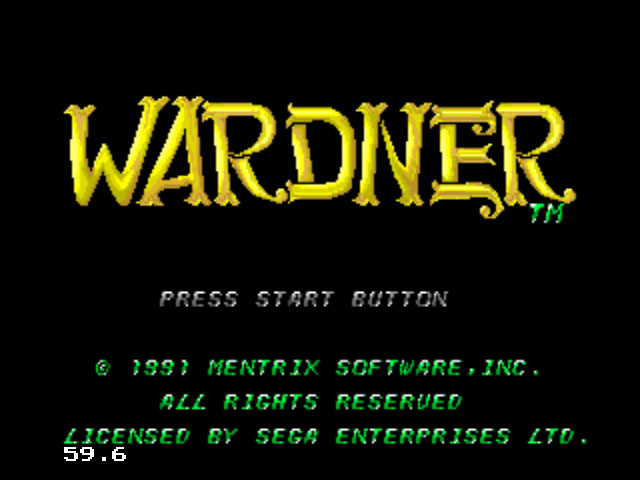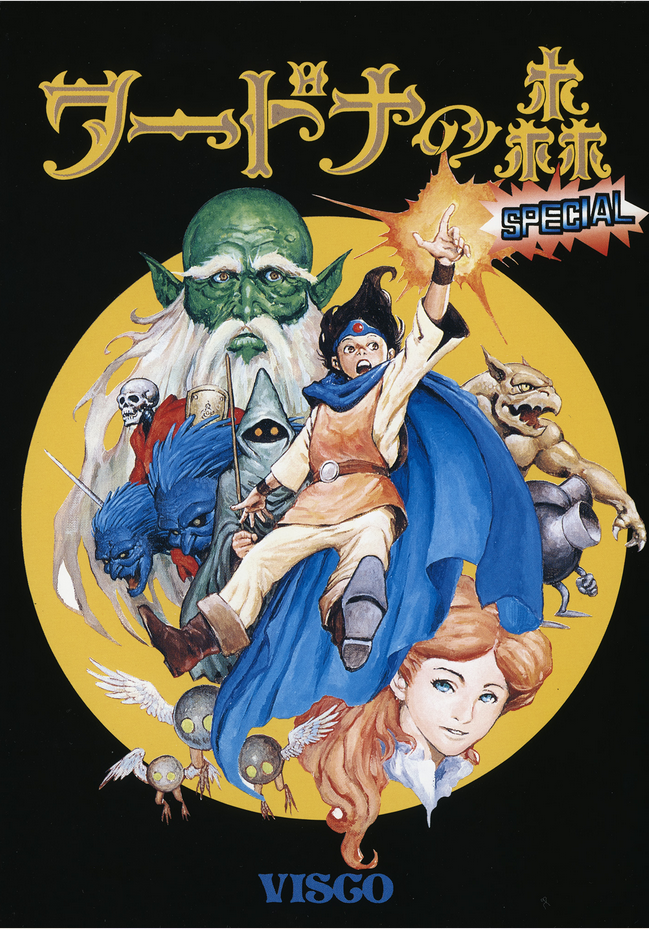
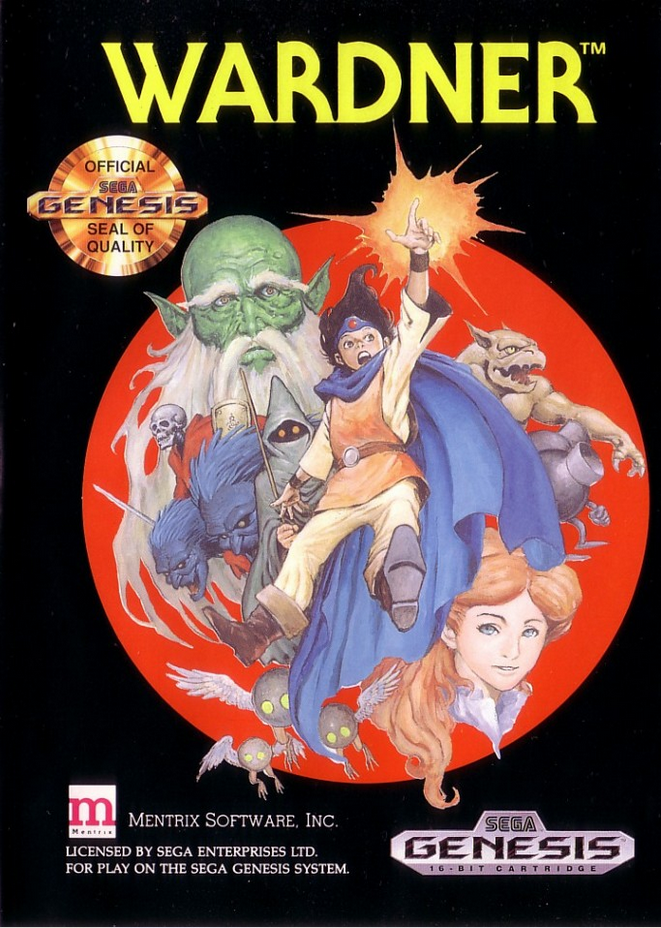
PUBLISHER: Visco (Japan), Mentrix Software (US)
DEVELOPER: Toaplan (port by Dragnet)
RELEASE DATE: 04/26/91 – (JP), 05/1991 – (US)
The company Toaplan is a favorite ’round these parts. Their focus was primarily shoot-em-ups, and they developed approximately 734 of the 1,256 shoot-em-ups on the Genesis (numbers adjusted for inflation). Games like Truxton, Hellfire, and Fire Shark are maddeningly difficult and require intense concentration and reflexes, but they’re also some of the most rewarding shmup experiences on the console.
In the midst of Toaplan’s shooting madness comes Wardner, an arcade platformer with a bizarre nondescript feel that runs throughout the game’s six stages. Like Toaplan wanted to branch out beyond shoot-em-ups, but didn’t want to try that hard.
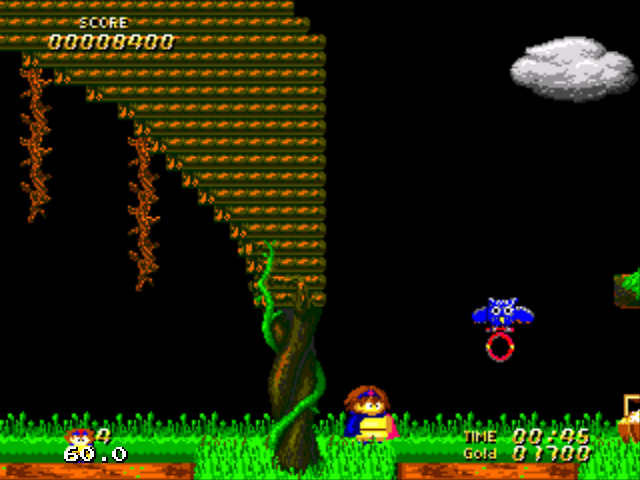
In Wardner, you control a young boy named Dover who looks unbelievably like Cartman from “South Park.” Throw in a miserable squiggle for a mouth, remove his Renaissance Fair ensemble, shorten his hair a bit, and you have the spitting image of Cartman, ten years prior to “South Park”s debut.
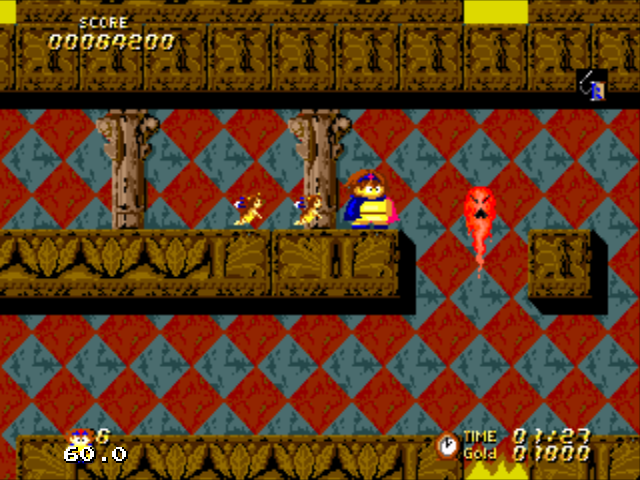
Anyway, Dover and his lady friend Mia are tromping around the woods at night (as you do) when they’re accosted by a cloaked evil figure. The figure proclaims that he’s taking Mia to an old evil wizard named Wardner, because… why not? Wardner is wicked, children are pure of heart or something. The evil figure whisks Mia away and it’s now up to Dover to overcome Wardner’s minions and save her.
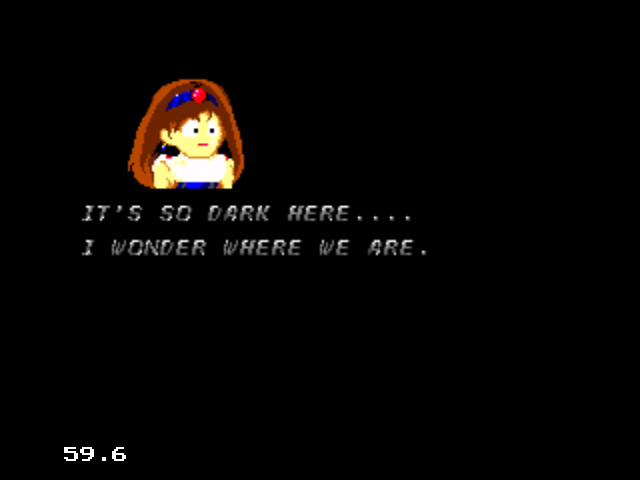
From here, Dover ventures into creepy areas with unoriginal names like Woods, Castle, Lava Woods (the woods, but with lava in it), and Dungeon. Supernatural beasties pop their heads up, you shoot them with Dover’s fire launcher, they drop some gold, you collect it, brilliant, on your way. Platforms are sprinkled throughout each level, some necessary, some optional. Extra points are often obtained by just jumping around in different areas, so even if a platform looks out of the way and unnecessary, you might net yourself a cool thousand points if you land on it. Boss battles happen at the end of every stage, and until you’ve upgraded your weapon, these can take awhile. Dover’s fire works well for minor enemies, but bosses, like the young girl who turns into a horrific spider, require considerably more hits.
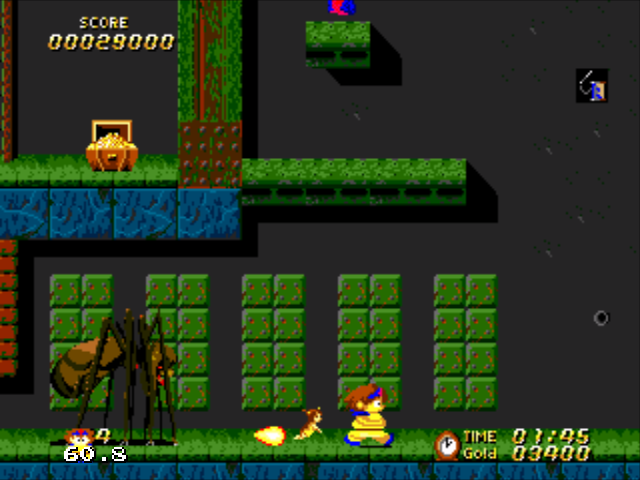
Shops appear after a stage is complete, filled with useful items like: weapon upgrades, capes that give you an extra hit, needle and thread that give you another hit if you have a cape equipped, and extra time. If you’re killing the enemies Wardner throws at you, you’ll have more than enough gold to keep yourself in good shape. Capes and needle/thread are absolutely essential, and eventually, you’ll want to upgrade your weapon and get some extra time as well. I recommend the Magic of the Sun which launches Dover’s fire all the way across the screen.
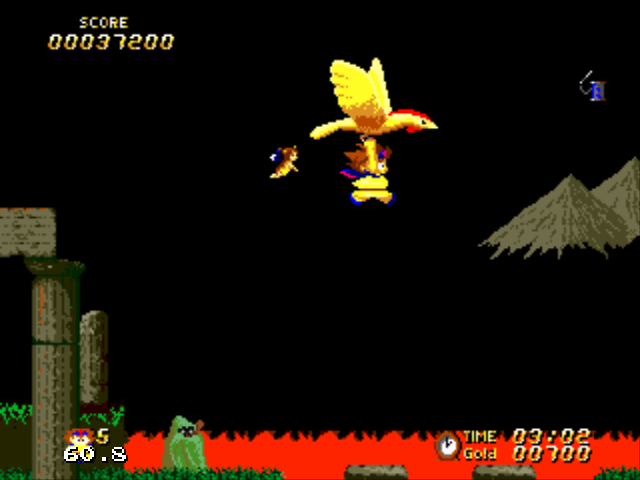
Despite the time limit ticking ever downward on the screen, Dover’s walking speed is slow and contemplative. He doesn’t seem concerned about our limited time, so why should we? For the most part, the four minutes provided is more than enough to make it through each area… until the last two stages. You’ll want extra time from the shop for the Castle and the Dungeon, and even then, it might not be enough. The Dungeon in particular has you ascending up rows of block stairs on three separate occasions. With Dover’s supple frame, it’s easy to get hung on the tops of these stairs and fall to the previous stair, losing valuable time. It’s annoying, but thankfully, if you die because you ran out of time, you’ll restart with a full clock at the closest check point.
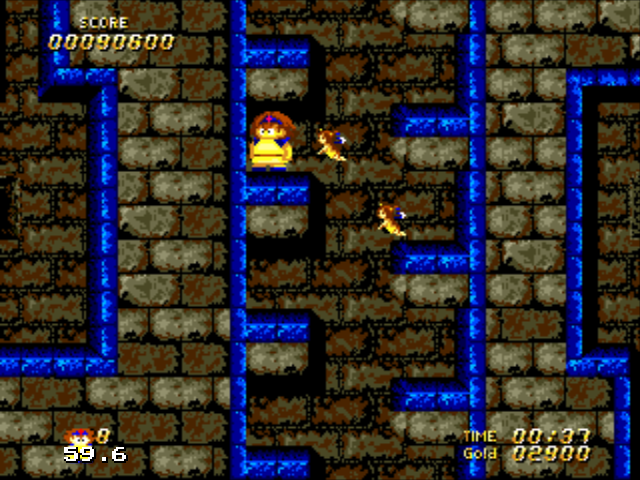
After three easy stages and three gruelingly difficult stages, you reach old man Wardner, a wizard who’s actually a demon in disguise (shock!). I’ve always wondered… why would demons choose to look like old men if they could pick their human form? Is it because old people look relatively harmless, thus disguising the demon’s evil intent? At any rate, beat both of Wardner’s forms, rescue Mia, and watch the rose petals fall across your screen in sweet-smelling triumph.
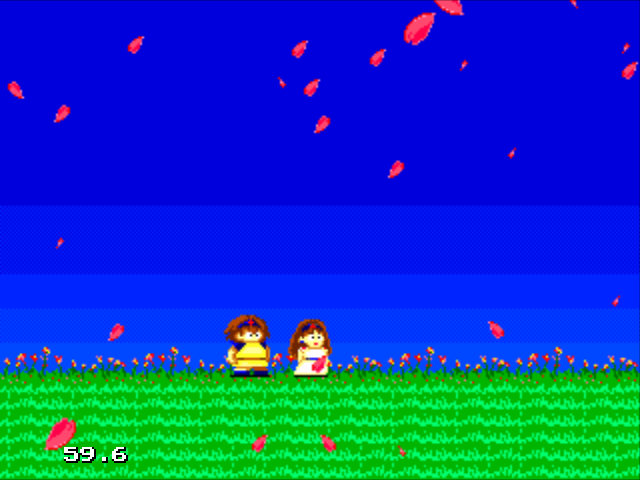
There is absolutely nothing wrong with Wardner. It plays and controls well enough, the ideas are very 1987 (spooky locales a la Ghosts ‘n Goblins, shops akin to Fantasy Zone or Zelda), but are properly executed. Once the game’s over, however, Wardner’s dead, Dover and Mia are together again, and… that’s it. Unless you play Wardner continuously, expect to remember very little from your time with it (except perhaps that girl who morphs into a spider boss, which is proper frightening). Dover is a boring, seemingly reluctant hero who shares none of the spark of, say, Arthur from Ghosts ‘n Goblins. Sure, he looks like Cartman, but that sort of clout only takes you so far. The platforming gameplay, again, works as it should, but the level designs aren’t interesting or memorable.
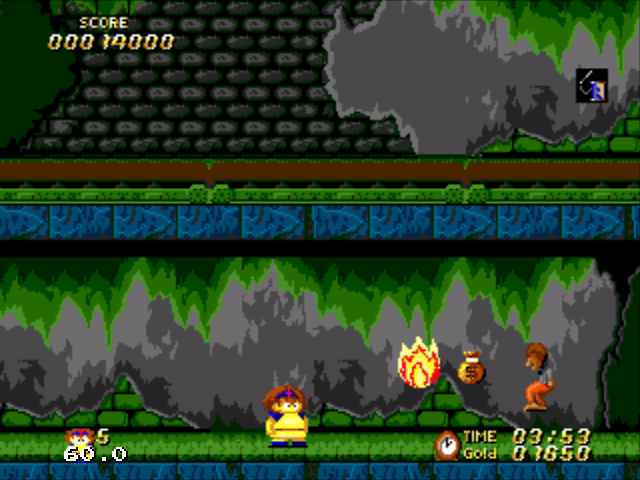
And thus, Wardner concludes with a hearty ho-hum. Toaplan would later branch out into run-and-gun action titles like Out Zone and beat-em-ups like Knuckle Bash, but their bread and butter remained shoot-em-ups. After Wardner, they never made another side-scrolling platformer again.
C
Time out of Mind
Wardner was released for the arcades in 1987, and indeed, this Genesis port – remixed in places, but more or less the same – feels like a game released from that time. Was this simple arcade platforming gameplay enough for players in April/May 1991? I’m going to go ahead and say “No.” My proof, such as it is, lies in this question: had you ever heard of Wardner before this review? I gorged gaming magazines throughout the 1990s and I do not remember seeing this game advertised, nor do I remember seeing it at Blockbuster or other rental stores. Given its lack of popularity on Pricecharting (one sale a month on average) and its relatively high price for a Genesis game, I presume that Wardner was less than popular on its release.
